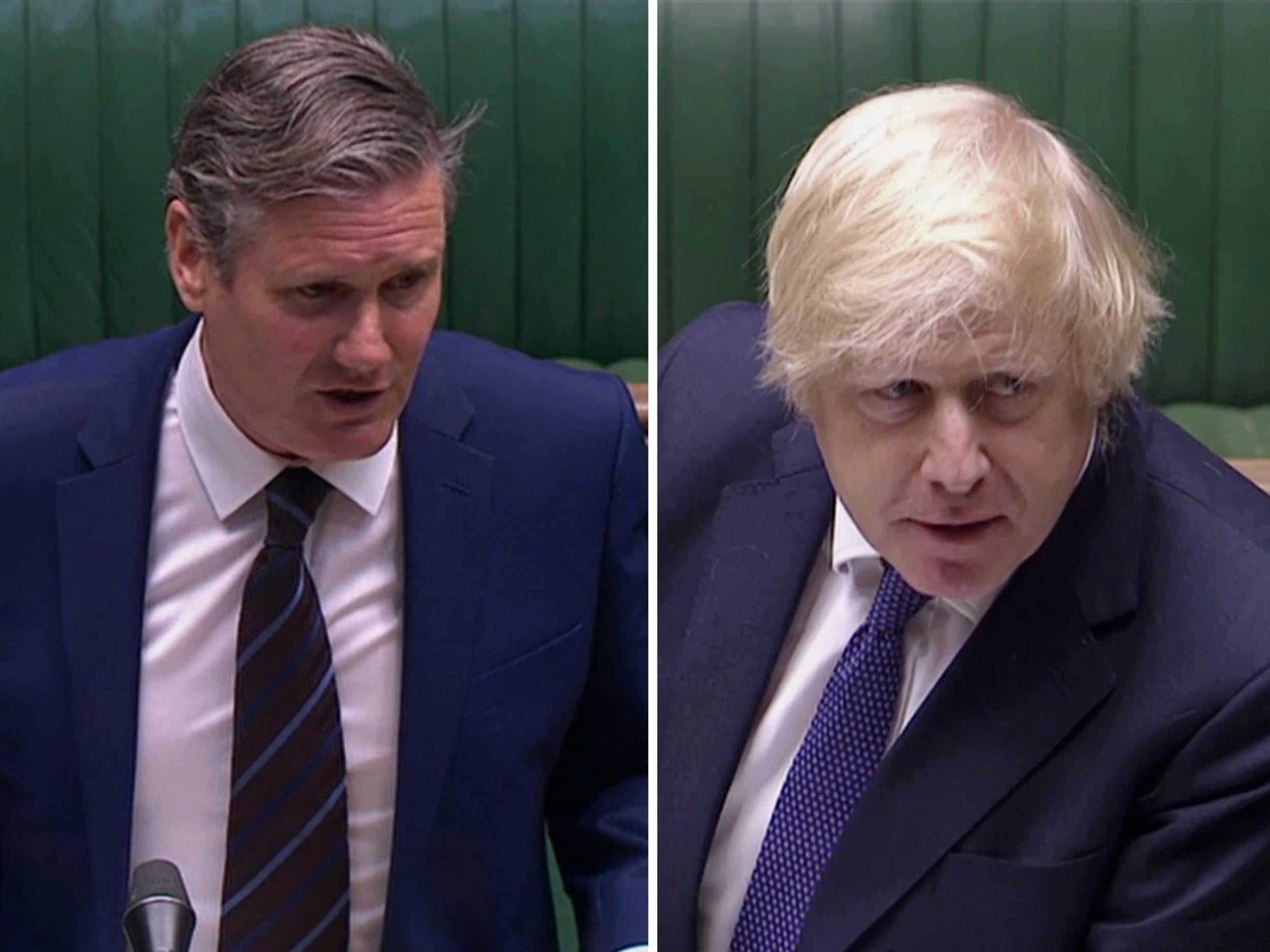Boris Johnson found out at PMQs just how short-lived gratitude is in politics – it’s all about what happens next
It is an iron law in politics that leaders get little credit for doing the right thing if they are seen to have done the wrong thing a short time later, writes John Rentoul


Keir Starmer is now the prime minister the people would prefer to see in No 10, according to an Opinium poll at the weekend. This finding may have tempted him to overreach himself in the House of Commons today, as he suggested that Boris Johnson was not doing enough to protect jobs.
The prime minister showed a little justifiable indignation, pointing out that the government had protected millions of jobs with the furlough scheme, which the Labour Party supported. But if Johnson was surprised that Starmer’s “constructive opposition” turned out to be more opposition than constructive, he is probably doomed to be disappointed with the British people when he discovers how short-lived their gratitude for the furlough scheme will be.
It is an iron law in politics that leaders get little credit for doing the right thing, if they are seen to have done the wrong thing a few months later. Hence Starmer’s ruthless focus on the next stage of the economic crisis.
I felt the Labour leader got the tone wrong by drawing a parallel between Johnson’s admission in his Dudley speech yesterday that the jobs that many people had in January are “not coming back”, and the occasion in early March when he said he “must level with the British public” that “many more families are going to lose loved ones before their time”. Starmer said: “We know what happened next.”
That seemed a tasteless reference to the death toll from the coronavirus pandemic, although I accept that it may well have been a brutally effective way of laying the blame for rising unemployment at the prime minister’s door. Stephen Doughty, the junior shadow minister, put it rather better when he said that people, including in his constituency, were glad of the furlough scheme but as redundancies are being announced they are worried about what is going to happen next.
What is striking, listening to focus groups of swing voters, is how many of them think the prime minister is well intentioned, trying his best in difficult circumstances even if they also think – and this is a theme that Starmer has pressed consistently, including today – that he has been too slow to act. I suspect that they will think it was unfair of Starmer to suggest that Johnson is “blind to the risks” of easing the lockdown.
However, any moral advantage Johnson might have gained from Starmer’s crime against tone was quickly thrown away as he resorted to prepared sound bites for his final answer, safe in the knowledge that his opponent could not respond. “Stop equivocating; support kids being in school,” he told Starmer, who last week sacked the main obstacle to Labour taking a clear line on getting all children back to school. “We are the builders, they are the blockers; we are the doers, they are the ditherers.”
I am not sure that this line is going to work. The view that the government has handled the coronavirus outbreak worse than every other government in the world apart from Donald Trump’s is already well established in the popular imagination. People think the government dithered early on in the epidemic, and the charge that Starmer is a ditherer doesn’t make sense.
To the extent that people are aware of it at all, he acted decisively in sacking Rebecca Long-Bailey as shadow education secretary for showing greater-than-zero tolerance of antisemitism; but more importantly, Labour’s hesitation about getting children back to school was broadly in line with public opinion, alarmed that the government is trying to ease the lockdown too early.
The great British public is quite capable of complaining both that the lockdown is being lifted too early and that the government is doing too little to get the economy back on its feet. And Starmer has shown great skill in riding both those horses.
As the unemployment numbers rise, and the return of benefit sanctions today leads to more demand for food banks, the furlough scheme will slowly be forgotten and the government will be blamed not just for being too slow to deal with the virus, but also for being too slow to get us out of the coronavirus recession.
Johnson may think that politics is unfair, but he had better get used to opinion polls suggesting that people think the other guy would do a better job.
Join our commenting forum
Join thought-provoking conversations, follow other Independent readers and see their replies
Comments